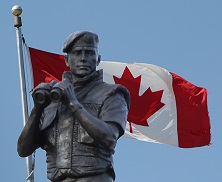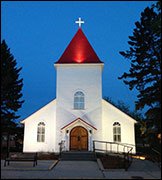True and Fascinating Canadian History
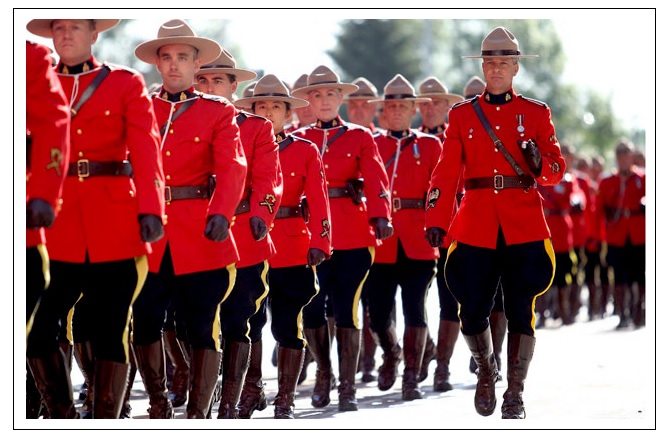
The Mystery of The Mountie and The Mixed Up Rank
Was Sergeant Major Hall Busted?
by J. J. Healy
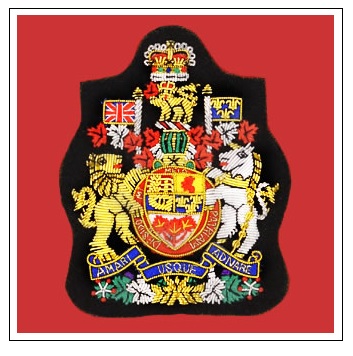
by J. J. Healy

For many years, Mr. Reg Keatley of Calgary, AB has been a very, very active volunteer on the Grave Discovery Project and I thank him sincerely for all his work. Reg Keatley has researched gravesites of deceased members not only in the Calgary area, but in Saskatchewan and in parts of BC too.
Reg has also provided hundreds of photographs which show the accurate location of graves as well as their present condition. Once again, Bravo Reg! Now it's time to reveal a Mystery which Reg Keatley told me some years ago.
It seems that during one of his grave search excursions, Reg noted a mistake on the headstone of North West Mounted Police (NWMP) Sergeant Major George B. Hall.
Mr. Keatley wrote in an alarming fashion: Dear Joe; "Sergeant Major Hall is buried in Union Cemetery, Calgary, AB., however, his headstone mistakenly reads Constable Hall! Can this Mystery ever be sorted out?"
Surprised as I was, I quickly replied to Mr. Keatley partly exclaiming: "Reg, holy long-shank spurs! Do you have any idea of the mess which you have uncovered? The Commissioner has worries enough -- this is a one mystery that we must accept."!
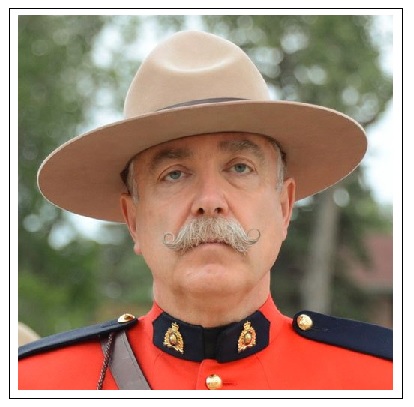
After the initial shock of Reg's discovery, I began to wonder about the repercussions of making an error of this calibre on a Sergeant Major's marker? After all, among all the ranks in the cavalry, it is the Sergeant Major who sets an example for all others to follow. Equally important is that the Sergeant Major is the narrow bridge between the Officers and the enlisted. Hum...I thought: "if it were only that simple..."
Few people will forget their impressions of the Sergeant Major on the Parade Square after they see him for the first time; his crisp uniform, the exactness of his drill movements, the moustache which seems wider than the wings of a Cessna, his highly polished boots and leather attire, his confidence in the eyes of hundreds of people and his unmistakably, loud, baritone voice which can be heard clearly over cannon fire, aircraft overhead, carnival music and children crying.
Tradition speaks that one of the highest honours to a man is his promotion to Sergeant Major. He is one of a kind -- never ever lost for words. It is commonly known in the military and in police forces worldwide that the Sergeant Major ought to be treated with respect especially given the supportive role which he plays in his unit on behalf of the Commanding Officer.
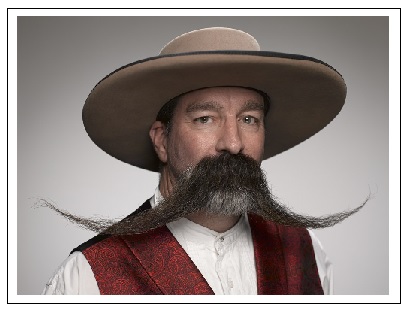
At the same time, most Sergeants Major have a incredible sense of humour which they are not afraid to display no matter who is listening -- the quips, the poetry, the colour, the one line zingers could be described as Parade Square rap which came into vogue, in Canada it seems, after World War II when the boys came home. Originally, it was the Sergeant Major who made rap what it is today. In some circles, it is said that the Sergeant Major's word selection evolved into what became known as a dictionary! It's all exaggerated one man theatrics designed to relax the troops on parade, for instance, prior to a VIP visit. More than any other human quality -- the Sergeant Major has a heart which defends and cares for his people.
The Sergeant Major can expect that in another, completely relaxed environment, let's say at the Senior NCO's Mess, that the banter works both ways. The payback aimed at the SM, by other Senior NCO's, is always kept respectful but humorous. The SM knows he must have skin laminated with steel to withstand some of the humorous arrows aimed at him.
The more quips and spurs -- the louder the laughter. Another round by the Sergeant Major! Male bonding -- Esprit de Corps.
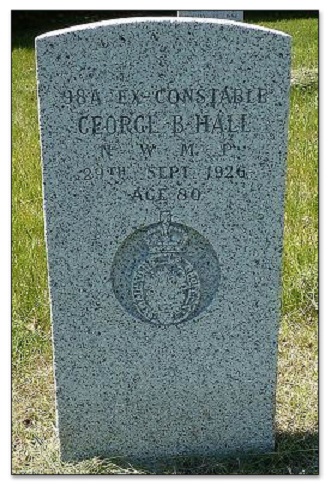
but his actual rank was Sergeant Major George Hall
The Sergeant Major lives in a world of exaggeration. Prior to grooming his horse, for instance, it was once humorously reported that early North West Mounted Police Sergeants Major (of the Sam Steele variety) ate spent cartridge casings for breakfast. And, one may not be acquainted with their habits, but there is a historical reason for the Sergeant Major always looking skyward -- it's because he reports exclusively to one master -- his ears listen only to the most senior Officer in the outfit meaning 'The Skipper' (the CO, the Commanding Officer). Rightfully, a Sergeant Major must be as independent as a football line referee.
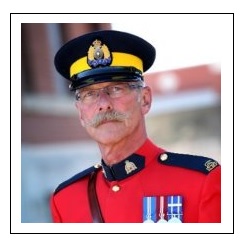
To partly grasp the inner thoughts of a Sergeant Major, consider the words of one famous, unfriendly and unapproachable Sergeant Major in Gagetown, NB whom I knew in the Canadian Guards in the 1950's -- (I must censor his vocabulary), but in a nutshell he shouted: "...to hell to anyone less than the CO or me!" This attitude of confidence on behalf of the Sergeant Major transferred into valuable knowledge by the Commanding Officer who could easily calculate that his problems are cut down by 90 per cent if he has a reliable Sergeant Major as his voice.
In the early years of Canada, young, bright, keen men sought their career in the military beginning with higher level education at Kingston's Royal Military College RMC. After RMC, newly Commissioned Officers were given a command position upon being accepted into the NWMP. Almost immediately, the majority of Officers learned that some critical topics were apparently overlooked on the curriculum at RMC.
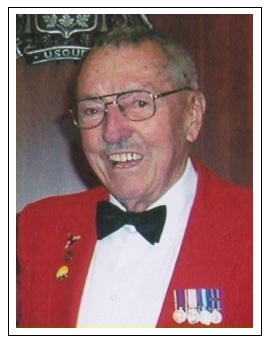
For the majority of Officers, let's say those with above average intelligence, identified their most vital priority as a good, sturdy horse upon which to sit. But, the single priority for those Officers who were most wise, was their selection of a sober Sergeant Major. A good Sergeant Major provided his Senior Officer both a good horse and valuable time to enjoy it. Life has little changed -- success remains a question of good or best choices.
I halt now to summarize Sergeant Major Hall's problem -- it would seem from what's written on his grave marker that he was busted in rank, from Sergeant Major to Constable, maybe by some mean spirited person -- could it have been a former member of the NWMP? Not very likely.
It is more likely that his grave marker was made by a contractor who simply was ignorant about the ranks in the early North West Mounted Police. He did the best he could with the information at hand. The person ought not be blamed. Truthfully, I too, am confused about the ranks in our present day Air Force or the Canadian Navy.
Anyway, it's needless to ask, but would any Sergeant-Major lie peacefully knowing he'd been busted in rank, for whatever reason or by whom?
Damn few answers come to my mind over this Mystery. It's unsettling and unnerving.
Surely, the incorrect rank on the Sergeant-Major's gravestone ought to corrected so that Sergeant Major Hall might finally and fully forgive us?
Reporting from the Fort,
J. J. Healy
^ Back to Top ^
We can agree there's confusion enough in the early history of the Force with regards to assigning Regimental Numbers to the Officers and enlisted men. Seems there is also some confusion about the assignment of rank designations.
In the case of NWMP member Hall aforementioned, it was noted that the rank on his gravestone was 'Constable' when he in fact he retained the rank of 'Sergeant Major'.
Not long ago, an interesting and helpful letter was received from retired Staff Sergeant Major, Doug Pack.
Mr. Pack's research shines new light on ranks in the original 1873 North West Mounted Police.
S/S/M Pack's letter follows.
Shining New Light on Ranks in the Original
North West Mounted Police. 1873
Dear Mr. Healy:
I think I can provide a possible reason for Sergeant Major Hall being indentified as Constable Hall.
The notion that 'Sergeants Major' were once termed 'Chief Constable' is mainly from the NWMP Project currently undertaken by the Library and Archives Canada. (www.collectionscanada.gc.ca)
Library and Archives Canada list NWMP NCO ranks as: Chief Constable, Constable and Sub-Constable. Also, the Encyclopaedia of Saskatchewan: (http://esask.uregina.ca/entry/steele_samuel_benfield_1849-1919.html) lists Sam Steele as a Chief Constable prior to his being commissioned to Inspector.
The Canadian Biography online: (http://www.biographi.ca/009004-119.01-e.php?BioId=41844) also lists Steele's rank as 'Staff Constable' and says that it is the equivalent of a Divisional Sergeant Major!
In his autobiography, "Forty Years in Canada", Steele himself says he was promoted to Sergeant Major. Now one explanation for this discrepancy is the known fact that many of the Officers and men felt they were more a military unit than a civil police unit. For example, despite being the Commissioner of the Mounted Police, Arthur French preferred his Army rank of Lt. Colonel to that of Commissioner. Many others were the same, and it became common place for the North West Mounted Police to retain their previous or in some cases assumed rank names of their military counterparts.
Eventually it seems the Mounted Police or the Government gave up trying to change things and by the 1880's, the NWMP had established ranks of: Constable, Corporal, Sergeant, Staff Sergeant and with the appointment of Robert Belcher as the RSM for 'Depot' Div., a Regimental Sergeant Major.
Officers on the other hand were to remain in their civil police ranks although some still used their former military rank as did Commissioner McLeod who was referred in official correspondence as "Colonel McLeod". Commissioner Perry too, as late as 1923, maintained this practice as he was promoted to Major General and was known in retirement as "General Perry".
So, the bottom line is, who knows what was right or what was really the terminology used?
It would seem that things were as messed up back then as it is now. God knows that they complained about the lack of funding in the 1870's just as we do now. Perhaps that's the real reason for the missing words on the markers of S/M Hall and D/Comm'r. Eves who is listed in the 'Depot' Cemetery as Commissioner - perhaps they were cynical efforts to save money!
I hope this helps.
Yours truly,
Doug Pack
S/S/M
doug.pack@hotmail.ca
Appreciation!
I'd like to thank S/S/M Pack very much for his letter. It provides a new slant on the Mix-up and Mystery of Sergeant Major Hall. S/S/M Pack's explanation, based on historical research, is very helpful and it provides a solid alternative explanation to the rank mix-up on S/M Hall's grave marker.
Perhaps we should not worry -- maybe Sergeant Major Hall has been resting peacefully all the while.
Once again, thank you S/S/M Pack!
Website Sources:http://www.collectionscanada.gc.ca/obj/008004/f2/H-31_en.pdf
Library and Archives Canada (www.collectionscanada.gc.ca)

